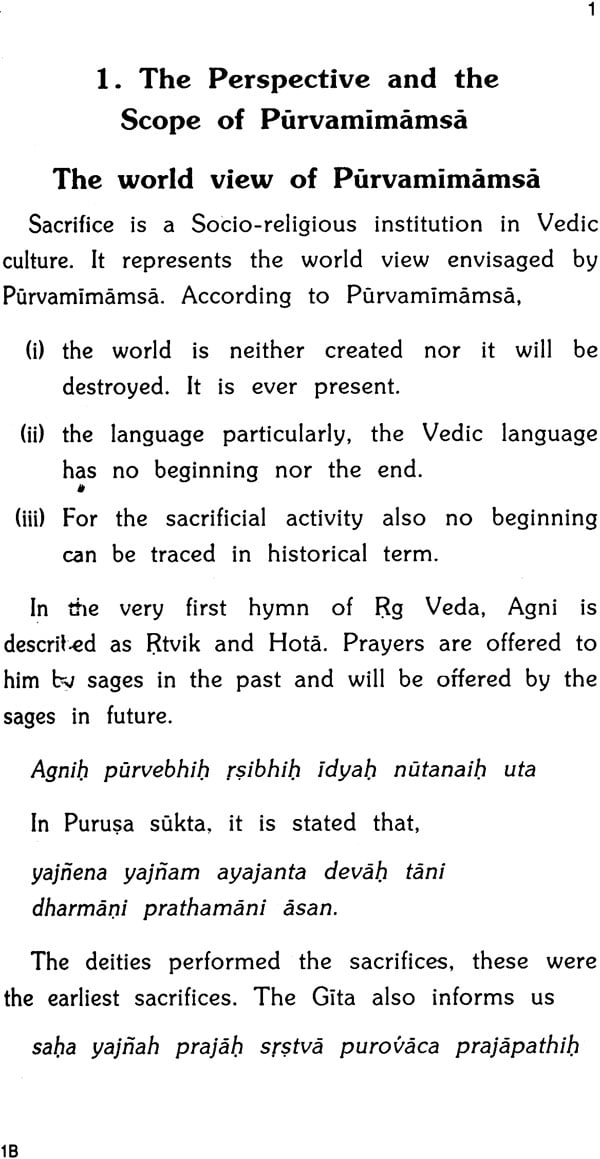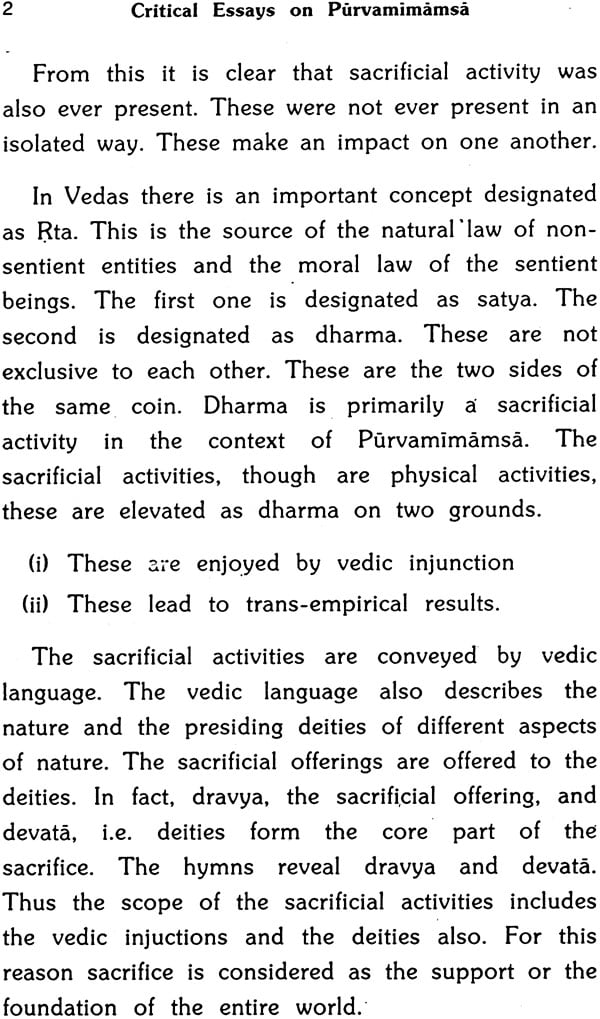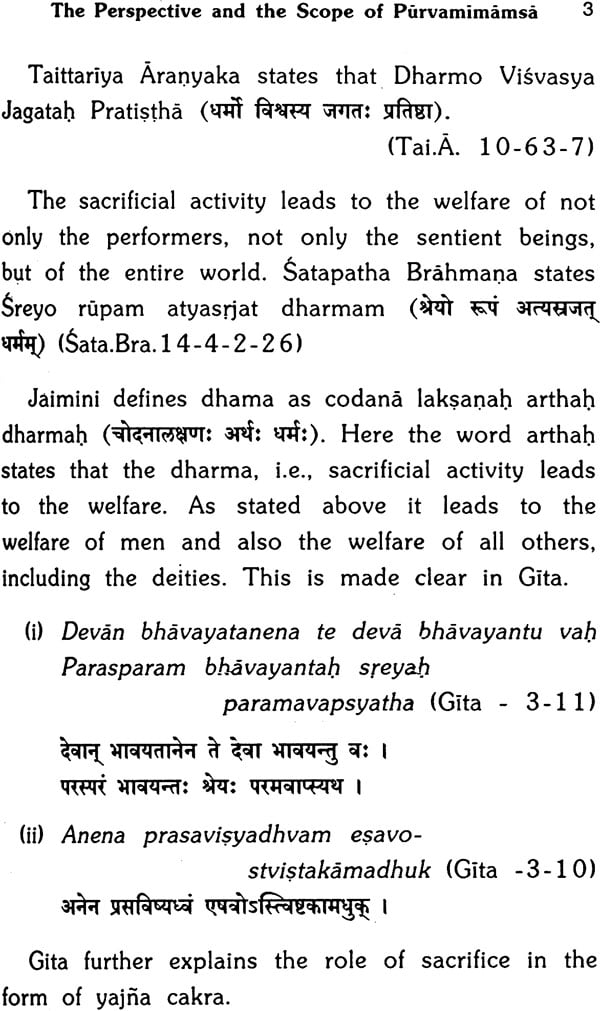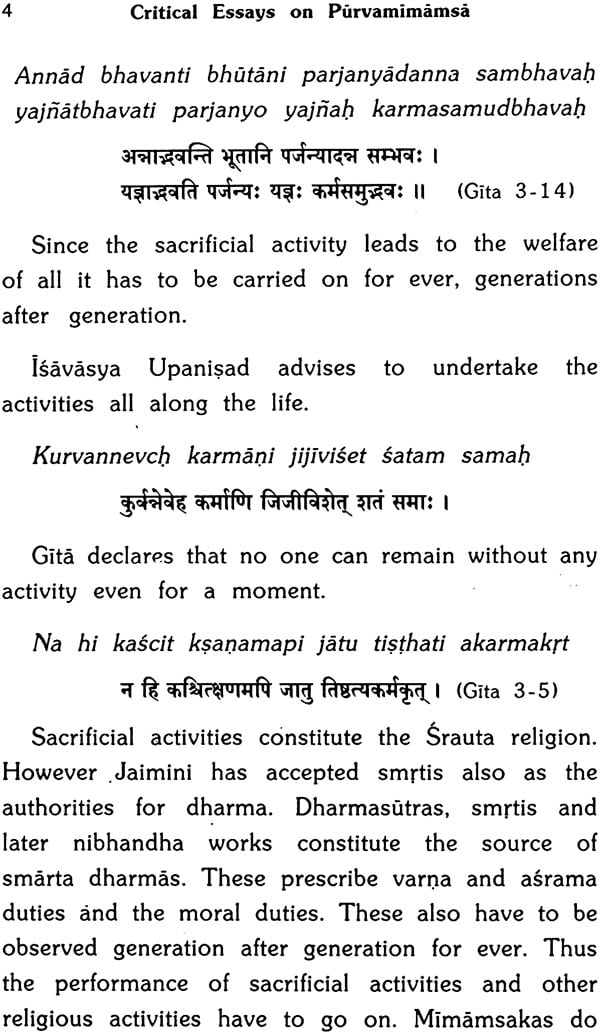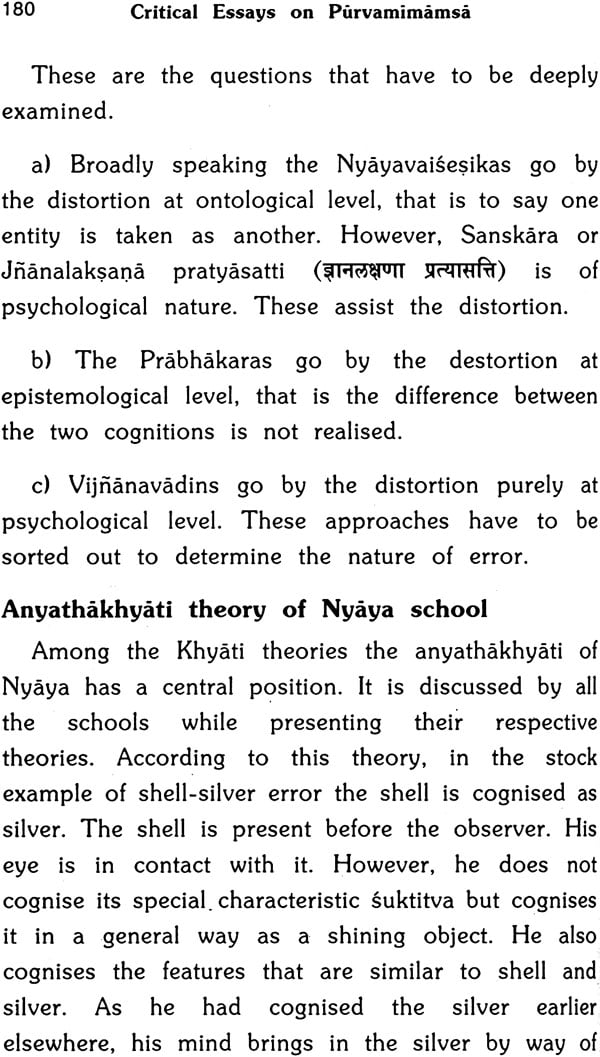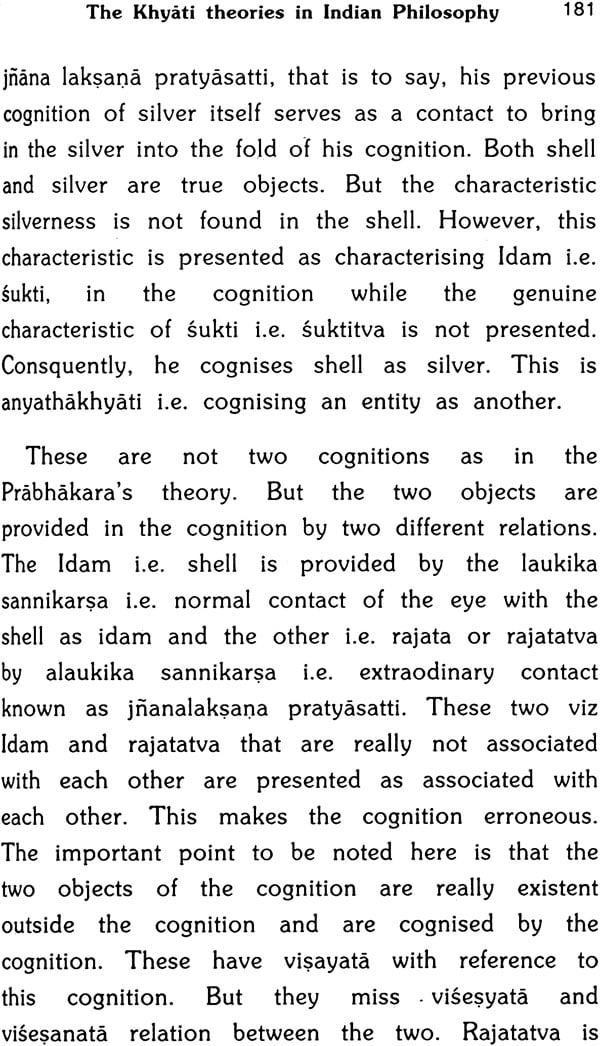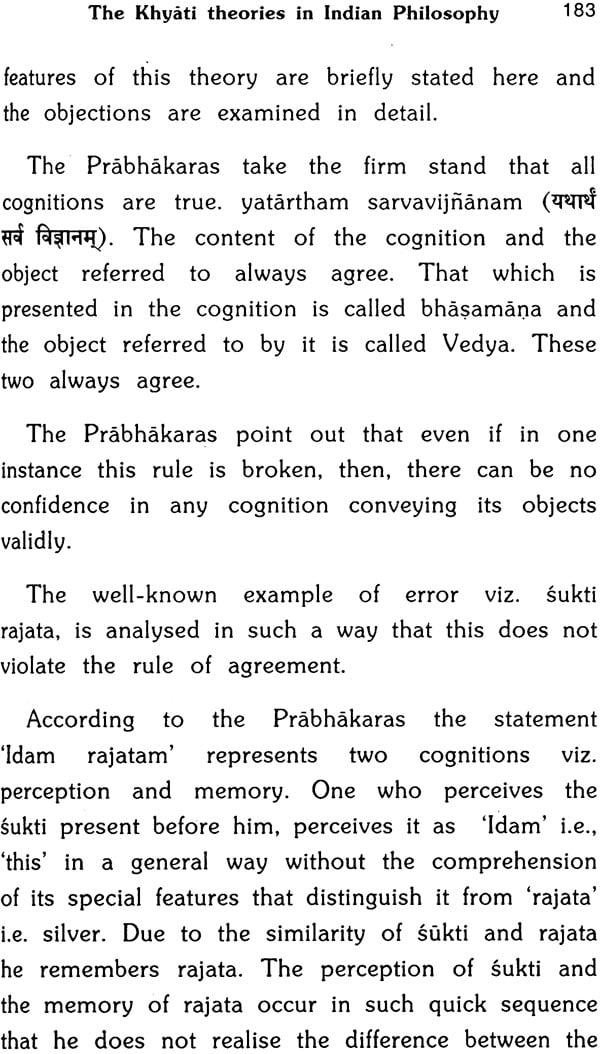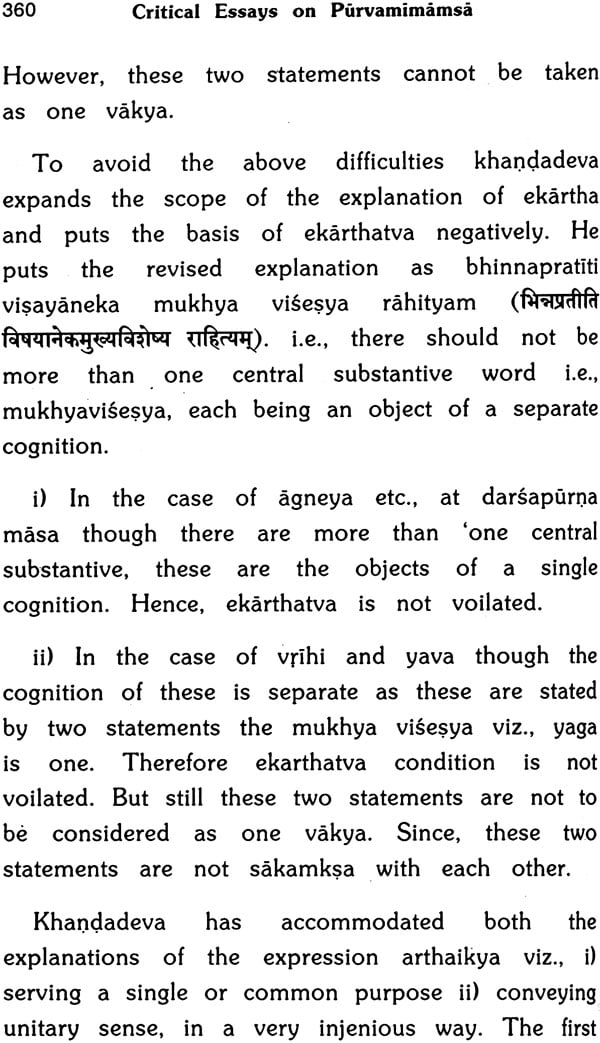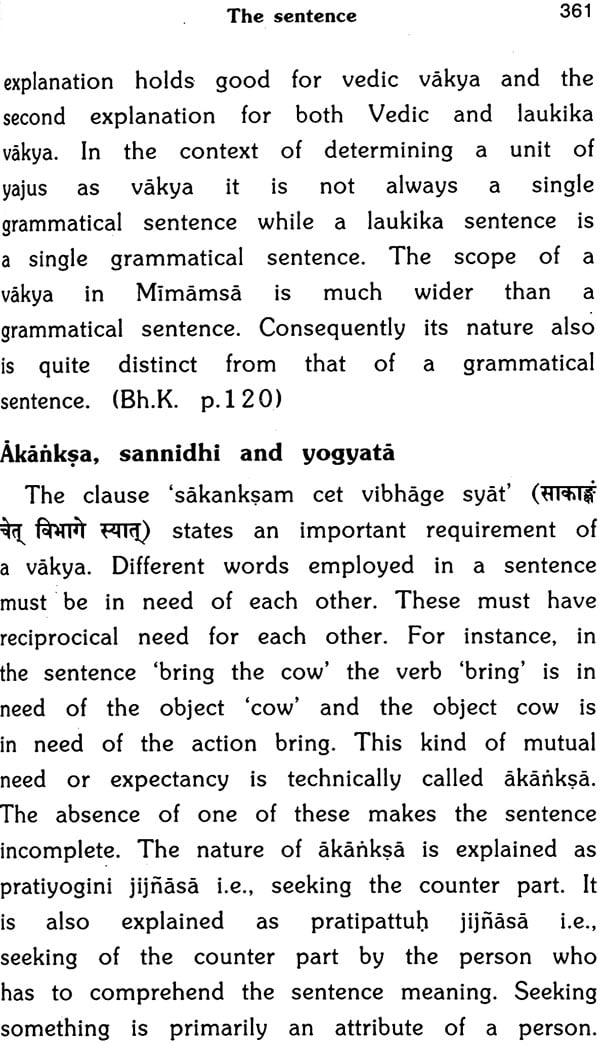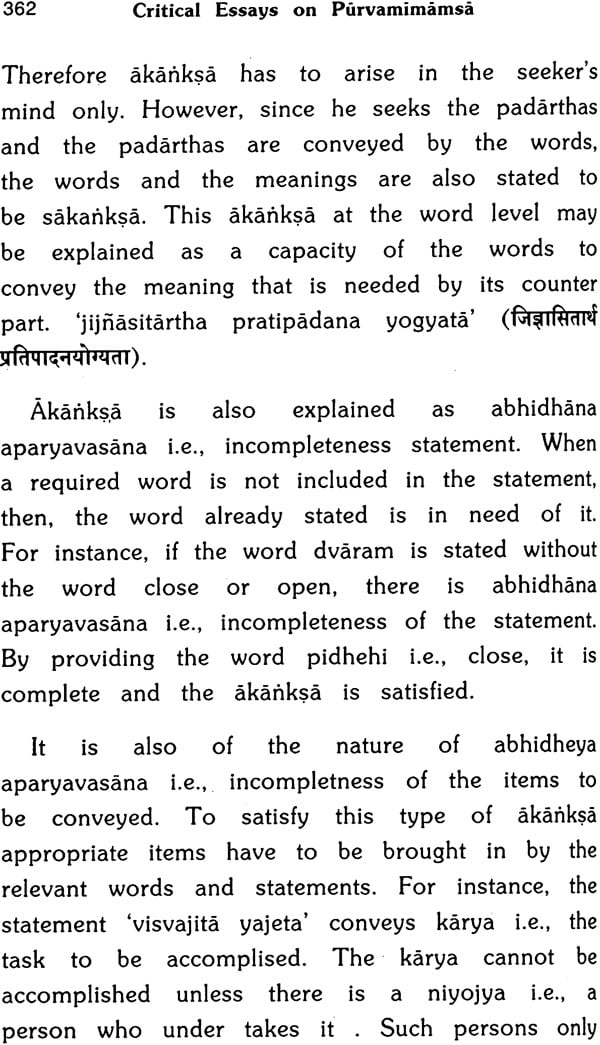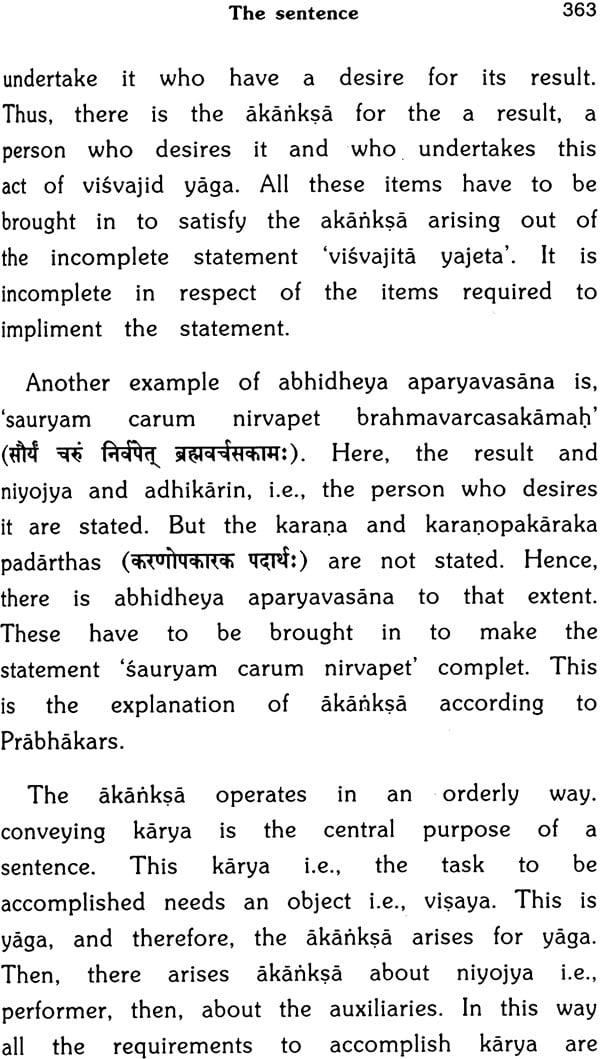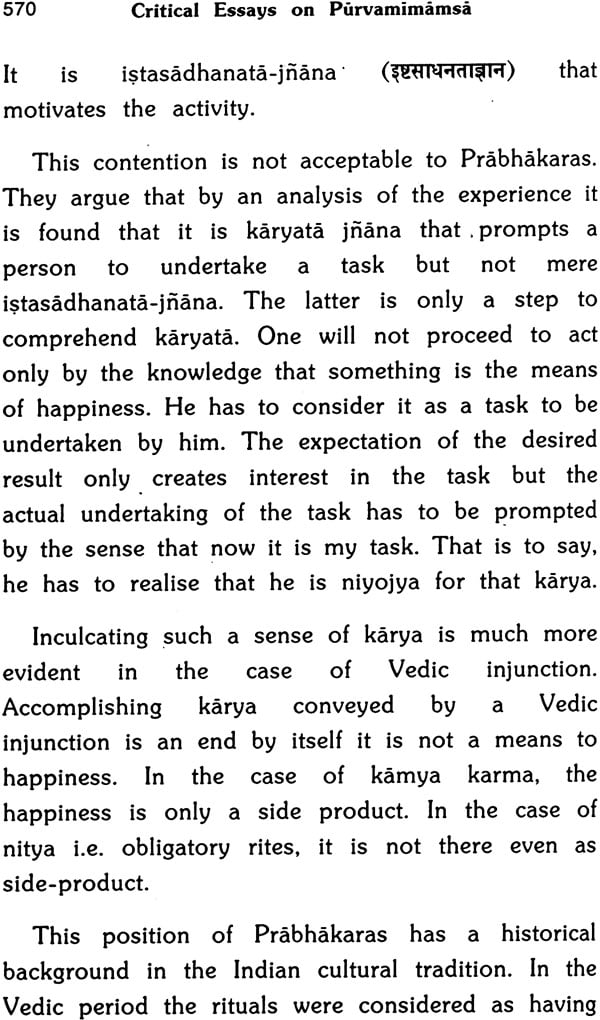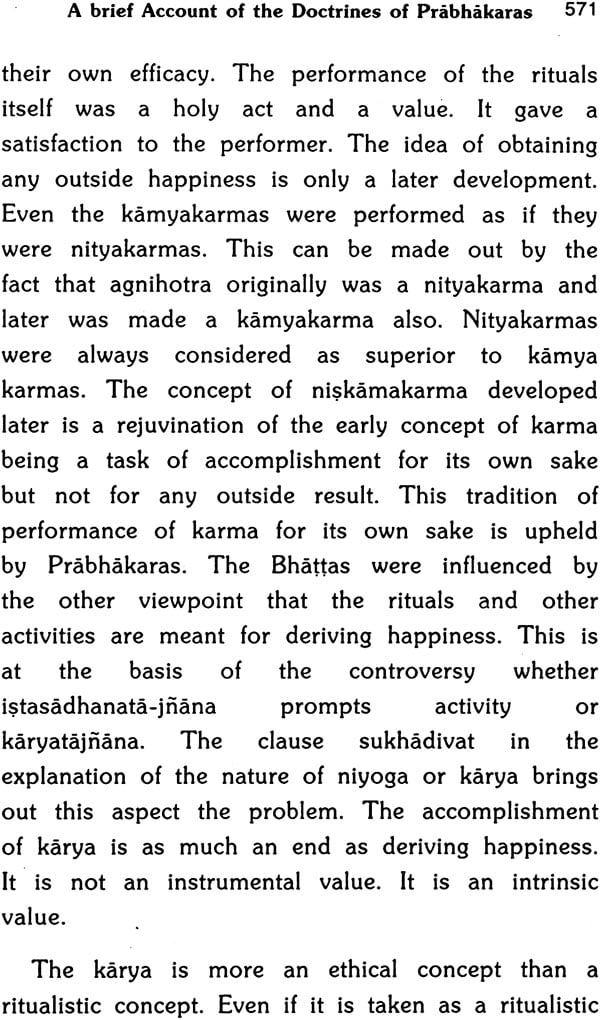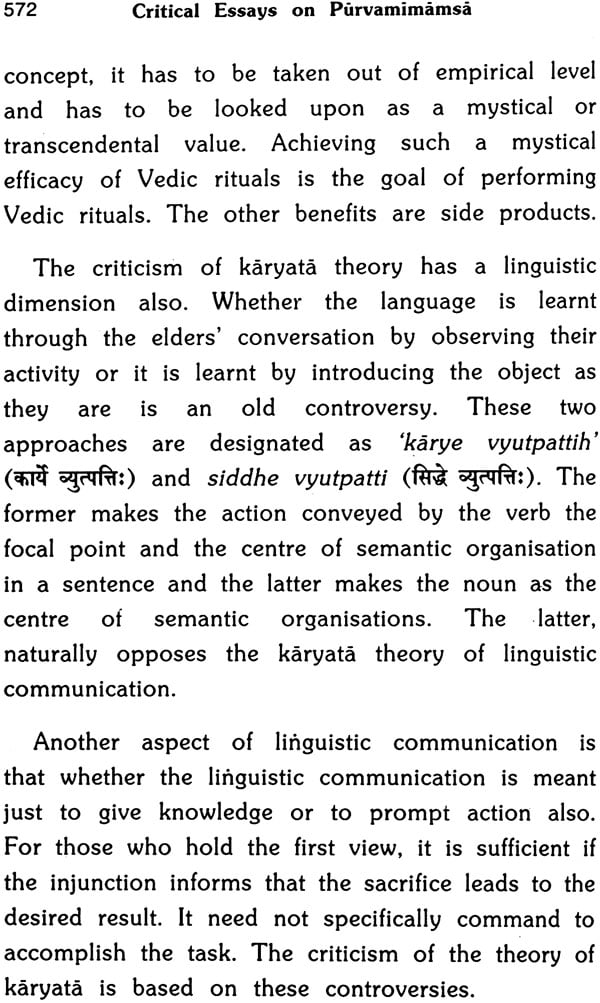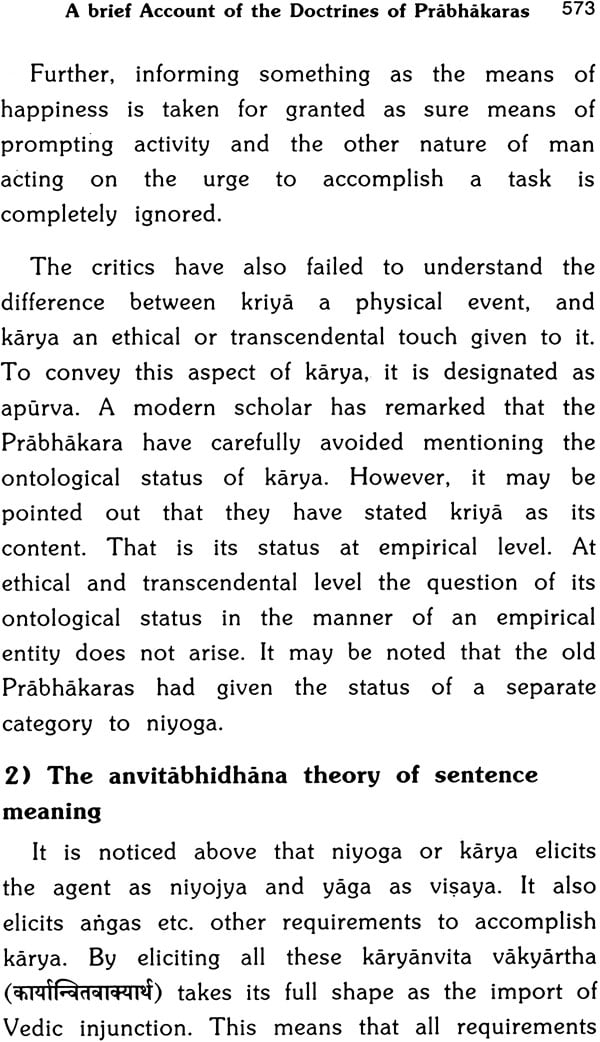
Critical Essays on Purvamimamsa
Book Specification
| Item Code: | NAJ473 |
| Author: | Prof. K. T. Pandurangi |
| Publisher: | Vidyadheesha Post-Graduate Sanskrit Research Centre, Bangalore |
| Language: | English |
| Edition: | 2013 |
| ISBN: | 8190372793 |
| Pages: | 630 |
| Cover: | Hardcover |
| Other Details | 9.0 inch X 5.5 inch |
| Weight | 790 gm |
Book Description
Krishnacharya Tammannacharya Pandurangi (K.T. Pandurangi) was born in 1918. He belongs to a family of traditional Samskrita scholars who have made distinct contribution to Dvaita Vedanta of Sasananandatirtha (Madhvacharya) of Udupi. He obtained Vedanta Vidwan and Mimamsa Siromani at these Institutions. Later he obtained BA Hons and MA degrees from Benaras Hindu University. He taught at Karnatak College, Dharwar for twelve years and Govt. College, Bangalore for six years. Later he joined as Head of the Post Graduate Department of Sanskrit at Bangalore University. He visited Germany, Austria and USA and delivered lectures on Vedanta and Mimamsa at the Universities in these countries. Students come to him from the Universities in these countries to study advanced texts on Indian Philosophy. He was a member of Rashtriya Samskrita Samsthan and Central Samskrita Board. He was a Senior Fellow of Indian Council of Philosophical Research. He was President of Mythic Society, Bangalore for twelve years. He is presently the Upakulapati of Poornaprajna Vidyapeetha and honourary director of Dvaita Vedanta Foundation at Bangalore.
He received Rashtrapati Award in 1989 and Mahamahopadhyaya title in 1997 from Tirupati Sanskrit University and Sir William Jones Medal from Asiatic Society, Kolkatta in 2005. He has edited about forty Dvaita Vedanta works and ten purvamimamsa works. He has translated Principal Upanishads into English according to Sri Anandatirtha. His publications include English Exposition on Prakarana Pancika of Salikanatha and Critical Essays on Vedanta and Veda and some literary works, such as Kavyanjali, Ravindra Rupakani and Kavikavyadarsana.
This volume contains 82 critical essays on Purvamimamsa. These essays represent the lectures delivered in Andhra University and Karnatak University and other centres of studies. Some of these essays are large (6-8 pages) while others are small (2-4 pages). This depends upon the topic concerned.
There are very few works on Purvamimamsa in English. Mimamsa Darsana published in the series of Indian Philosophy of Benaras University gives some topic of Purvamimamsa. Mahamahopadhyaya Ganganath Jha’s English translation of Sabarabhasya and Slokavaritika are useful only to study the texts. These do not make a critical assessment with an interdisciplinary approach.
In this volume a critical and disciplinary study of all major issues of Purvamimamsa is made. It is hoped that this volume will be useful to research students and research scholars.
| 1 | The Perspective and the Scope of Purvamimamsa | 1 |
| 2 | Avestan Yasna and Vedic Yajna | 12 |
| 3 | The eligibility to perform the sacrifice | 16 |
| 4 | The concepts of Apurva and Svarga | 26 |
| 5 | Key-note Address at the Summer Institute on Purvamimamsa | 32 |
| 6 | The epistemology of Purvamimansa | 39 |
| 7 | Apauruseyatva of Veda and Svatastva of Pramanya | 44 |
| 8 | Purvamimamsa technique of programme organisation | 47 |
| 9 | Contribution of Purvamimamsa to Indian epistemology and semantics | 54 |
| 10 | Maxims of Purvamimamsa | 58 |
| 11 | Utilisation of Purvamimamsa nyayas in Vedanta | 61 |
| 12 | Utilisation of purvamimamsa nyaya in Dvaita Vedanta | 66 |
| 13 | Instances of secondary meaning of Sruti | 85 |
| 14 | Use of Upakrama, Upasamhara etc. criteria to interpret sruti | 90 |
| 15 | Use of Purvamimamsa nyaya to clarify Dvait interpretation and Dvaita doctrine | 93 |
| 16 | The word Jijnasa conveys the maning vichara by Rudhi | 97 |
| 17 | Om is both drstartha and adrstartha | 101 |
| 18 | Justification of dual number referring to one | 104 |
| 19 | Justificationof the word aditi belonging to Visnu Prakarana | 108 |
| 20 | Justification of the resence of opposite attributes | 110 |
| 21 | The maxims that support distinctionof Isvara and Jiva | 112 |
| 22 | Utilisationof the Mimamsa Maxims in the Dharma Sastra Literature | 114 |
| 23 | Max-Well's rules of interpretation and the Purvamimamsa rules of nterpretaton | 145 |
| 24 | The ontological nature of cognition in Purvamimamsa | 147 |
| 25 | Nirvikalpaka and Savikalpaka | 155 |
| 26 | The definition of Pramana | 161 |
| 27 | The theory of the validity of Cognition | 164 |
| 28 | The Nyaya theory of the validity of cognition | 166 |
| 29 | Mimamsa theory of the validity of cognition | 172 |
| 30 | The Khyati theories in Indian Philosophy | 176 |
| 31 | Sastrapramana i.e., Scriptural testimony | 189 |
| 32 | The explanation of the nature of word, meaning, sentence | 209 |
| 33 | Upamana-Comparison | 213 |
| 34 | Arthapatti - Presumption | 218 |
| 35 | Anupalabdi - Non-cognition | 230 |
| 36 | metaphysics and Ontology of Purvamimansa | 238 |
| 37 | The categories | 244 |
| 38 | Time and Space | 248 |
| 39 | The qualities | 254 |
| 40 | Concept of svarupabheda | 265 |
| 41 | The concepts of Atman i.e. self, Manas i.e. mind, body and senses | 268 |
| 42 | Universals i.e. Jati, parts and whole i.e. avayava and avayavin, and relations i.e. sambandha | 289 |
| 43 | Semantics of Purvamimamsa | 312 |
| 44 | Modern theories of meaning | 327 |
| 45 | The relation between the word and meaning | 330 |
| 46 | Pimary and secondary meanings | 337 |
| 47 | The sentence | 355 |
| 48 | The Abhihitanvayavada and Anvitabhidhanavada theories of sentence meaning. | 385 |
| 49 | Interpretation of the sutra tadbhutanam kriyarthena Samamnayah arthasya tannimittatvat | 394 |
| 50 | Criticism of Abhihitanvaya theory | 398 |
| 51 | The import of the injuncion | 401 |
| 52 | Prabhakara's concept of Karya as the import of Injunction | 411 |
| 53 | The concepts of Sabdibhavana and Arthibhavana | 414 |
| 54 | The formula of the organisation of the Sarificial programme | 416 |
| 55 | Formula for the application of vedic injuction | 417 |
| 56 | The formula envisaged by Prabhakaras | 419 |
| 57 | The import of prohibition | 422 |
| 58 | The concept of Paryudasa | 424 |
| 59 | The status of Syenayaga | 428 |
| 60 | Vakyabheda i.e. one statement leading to two injuctions | 431 |
| 61 | Atidesa, Transference of auxiliariesfrom Prakrti to vikrti | 437 |
| 62 | Uha-Modification | 442 |
| 63 | The diety | 445 |
| 64 | In respect of saman some special points are to be noted | 447 |
| 65 | Bhadha-Exclusion | 449 |
| 66 | Nitya is set aside by naimittika | 454 |
| 67 | Vikalpa and Samuccaya i.e. option and combination | 455 |
| 68 | Tantra, the technique of one performance serving the purpose of ,many | 459 |
| 69 | The yagas that are to be performed on behalf of the dead | 470 |
| 70 | Daksina i.e., Fee to the priests | 472 |
| 71 | Pratinidhi - Representative | 476 |
| 72 | The role of Arthvada, mantra and Namadheya in organising the sacrifice | 481 |
| 73 | Sri Sankara and Purvamimamsa | 498 |
| 74 | Nyayavaisesika and Purvamimansa | 514 |
| 75 | The concept of Moksa in Purvamimansa | 521 |
| 76 | Khandadeva's Bhattarahasya | 533 |
| 77 | Theories of Sabdabodha | 536 |
| 78 | Dharmalaksana, Vidhyartha and Lakarathas | 545 |
| 79 | Bhattarhasya bhavaprakasika of Peri Suryanarayana Shastry | 556 |
| 80 | A brief Account of the Doctrines of Prabhakaras | 559 |
| 81 | Kumarila and Buddhism | 598 |
| 82 | Prof. Hiriyanna on Purvamimamsa | 606 |
